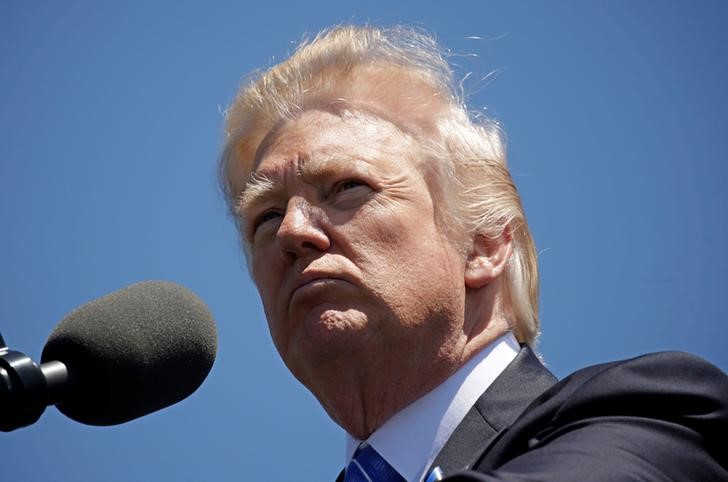(Bloomberg) -- President Donald Trump says the U.S. must seek changes to the United Nations’s Universal Postal Union that ensure “fair and nondiscriminatory rates for goods that promotes unrestricted and undistorted competition,” following complaints from manufacturers about shipments from China.
In an order issued Thursday to the U.S. Postmaster General and the secretaries of State, Treasury and Homeland Security, Trump called for modernizing the monetary reimbursement model for the delivery of goods through the international postal system.
The U.S. Postal Service currently collects below-cost payments, called terminal dues, to deliver small packages under 4.4 pounds from international shippers. These payments, set by the UPU, are being exploited, manufacturers say, by Chinese counterfeiters using e-commerce to flood the American market with cheap goods, delivered at much lower cost than goods shipped domestically, Bloomberg Government reported in April.
Trump, in the memo, said that if negotiations at a UPU summit next month in Ethiopia fail to produce satisfactory changes, the U.S. “will consider taking any appropriate actions to ensure that rates for the delivery of inbound foreign packages satisfy those criteria, consistent with applicable law.”
The order calls for terminal dues rates that fully reimburse the U.S. Postal Service for costs to the same extent as domestic rates for comparable services; avoid preference for inbound foreign small packages containing goods that favors foreign mailers over domestic mailers; and avoid preference for inbound foreign small packages containing goods that favors postal operators over private-sector entities providing transportation services.
Trump said he wanted to hear from his administration officials no later than Nov. 1 on steps being taken to implement the goals. If it is determined that sufficient progress is not being achieved, Trump asked for suggestions “for future action, including the possibility of adopting self‑declared rates,” according to memo.
Terminal dues are set by the UPU, which was established in 1874 and is the world’s second-oldest treaty organization. Robert Taub, chairman of the Postal Regulatory Commission, which oversees the U.S. Postal Service, told Bloomberg Government earlier this year that the problems with the terminal dues structure were well known to regulators and have been festering for decades.
Praise From Senator
The system worked well when international mail was mostly flat letters, and has only now gained attention because of the rise in e-commerce, he said. It wasn’t until the 1990s, when the commission began reporting on the costs incurred and rates charged by the U.S. Postal Service, that regulators caught on to the problem, according to Taub.
“President Trump is standing up for American workers and companies who are being hurt by this outdated, unfair international agreement on shipping rates,” Senator Bill Cassidy, a Louisiana Republican, said in a statement after the White House released the order.
“I’ve been working with the administration for months on addressing this terrible deal, because American companies are being run out of business by foreign competitors making cheap knockoff products they can ship to Louisiana for less than it costs an American company to mail the genuine product," Cassidy said.
Trump’s order comes as his administration also has been looking at ways to get the U.S. Postal Service on more solid financial footing. A presidential task force is said to have delivered a report to the White House outlining suggestions for reestablishing a sustainable USPS business model, a Treasury Department spokesman told the publication Government Executive earlier this month without elaborating.
The task force focused on the mail system was created by an order from Trump in April after he accused Amazon.com Inc (NASDAQ:AMZN). of using the Postal Service as its “delivery boy.”
While its contract with Seattle-based Amazon is confidential, the Postal Service has argued that its e-commerce services benefit the organization and its mail customers.
